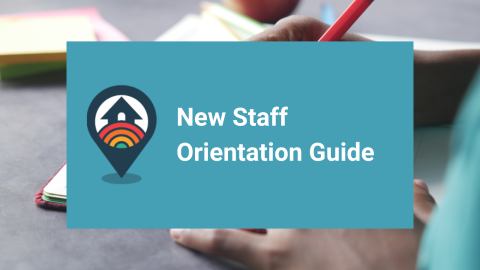Knowledge & Resources
Search and download a library of information and resources for health professionals and housing specialists.
Featured Article

This guide compiles introductory resources offered by HHRC into an orientation guide for new professionals. These resources provide introductions to serious mental illness, serious emotional disturbance, co-occurring disorders, achieving and maintaining housing, and treatment and engagement models.
Read MoreRecent Articles
Explore The Resources
Filter
Clear All- Topic: Disability benefits, Mainstream benefits, Specialized Partnerships
- 7 results found
- Disability benefits
- Mainstream benefits
- Specialized Partnerships
Results
-
Fact Sheet Overdose Prevention Vending Machines: Considerations for Implementation
This fact sheet introduces the evidence-based vending machine model, explains how it supports overdose prevention strategies, outlines what supplies to include, and highlights key considerations for implementation.
- Topic
- Co-occurring Disorders; Substance Use: Substance use prevention, Substance use treatment; Treatment Models; Specialized Partnerships: Military/VA, Hospital/clinic, Criminal/ Legal
- Language
- English
-
Fact Sheet Guide to Resource Mapping and Assessing Community Needs
This fact sheet describes available data sources for identifying service gaps and provides guidance for engaging in resource mapping to address those unmet needs.
- Topic
- Supportive Services: Employment, Mainstream benefits, Disability benefits, Peer Services / Supports, Education Supports, Family Supports; Specialized Partnerships: Military/VA, Hospital/clinic, Education, Criminal/ Legal, Faith-based, HUD Continuum of Care (CoC), Tribal Communities; Integrated Care; Data
- Language
- English
-
Article SAMHSA Learning Community for HUD Rural and Unsheltered Grantees
This Learning Community for HUD Rural and Unsheltered grantees will focus on supporting Continuums of Care (CoCs) in understanding and building cross-system partnerships that address the needs of individuals and families impacted by substance use and/or mental disorders among those experiencing unsheltered homelessness and homelessness in rural areas.
- Focus
- Type of Homelessness: Rural homelessness, Unsheltered
- Topic
- Mental Health: Serious Mental Illness, Mental health treatment; Co-occurring Disorders; Substance Use: Substance use prevention, Substance use treatment; Supportive Services; Specialized Partnerships; Integrated Care; Data
- Language
- English; Spanish
-
Toolkit Whole-Person Care for People Experiencing Homelessness and Opioid Use Disorder: Toolkit Part 2
This guide focuses on understanding the neurobiology of opioid use disorder (OUD) and the treatment and recovery pathways for OUD. The guide covers best practices for referrals and warm handoffs, as well as assistance in meeting basic needs such as income, food, and mainstream benefits.
- Topic
- Mental Health: Serious Mental Illness; Co-occurring Disorders; Substance Use: Substance use prevention, Substance use treatment; Treatment Models: Medication Assisted Treatment (MAT); Supportive Services: Employment, Mainstream benefits, Disability benefits, Peer Services / Supports
- Language
- English; Spanish
-
Article Learning Community: Trauma-Informed Outreach and Engagement
In this four-part series, attendees will learn the fundamentals of providing Trauma-Informed Care (TIC) from the lens of working to engage and provide services for people with behavioral health needs who are also experiencing homelessness.
- Topic
- Housing Models; Outreach and Engagment: PATH, Assertive Community Treatment (ACT), Street outreach, Coordinated entry, Motivational Interviewing, Point-in-Time Counts; Supportive Services: Peer Services / Supports; Specialized Partnerships: HUD Continuum of Care (CoC)
- Language
- English